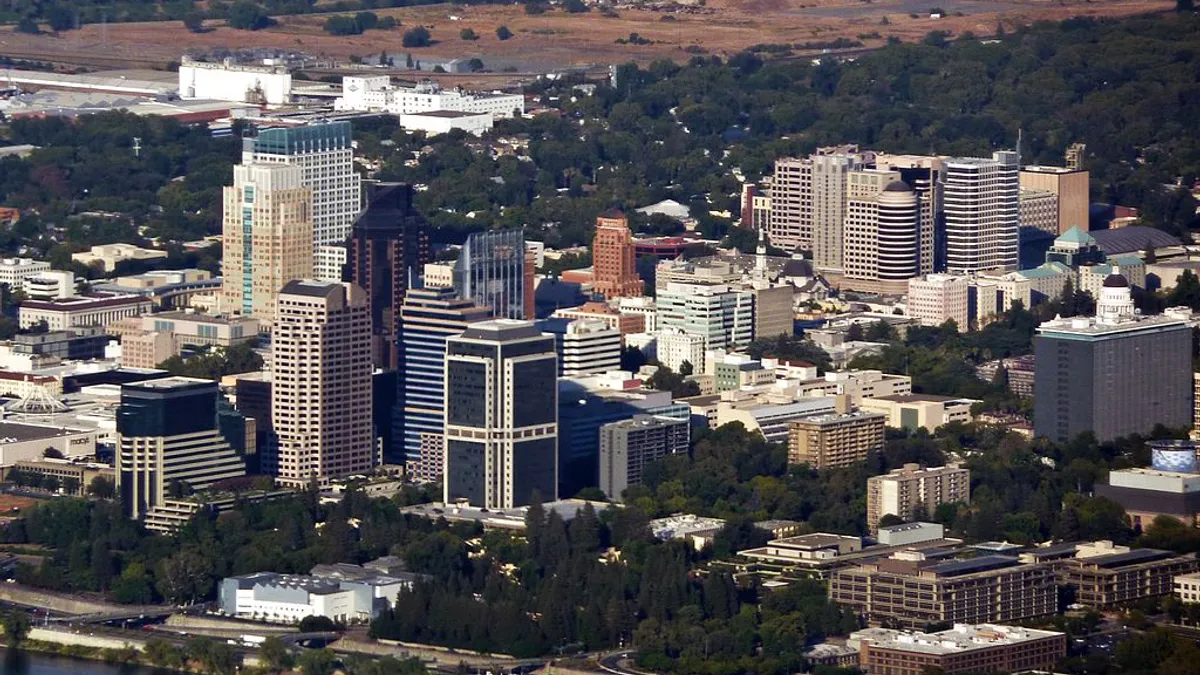Dive Brief:
- The City of Sacramento announced seven local companies will participate in its Economic Gardening 2.0 pilot program, with the chance to receive up to $50,000 to foster business development.
- The pilot pairs mid-sized businesses with funding, as well as with experts who will analyze data and create growth strategies. The program is supported by the Sacramento Urban Technology Lab (SUTL) in partnership with the Sacramento Metropolitan Chamber of Commerce and the California State University, Sacramento Career Center.
- Among the companies selected are organic meal delivery service Trifecta, hand-crafted product supplier Preservation & Co, creative firm Uptown Studies and AHI Construction. The other participants are design firm Honey and planning company The Party Concierge.
Dive Insight:
The Economic Gardening pilot is designed to help the city grow by fostering local businesses, rather than "attracting corporate headquarters ... to grow and diversify our economy," Mayor Darrell Steinberg said in a statement.
Sacramento Chief Innovation Officer Louis Stewart said in a statement that the project "gives us a chance to retain and expand business in the area, rather than solely attracting it from the outside."
To participate in the program, businesses must have already been established in Sacramento, with between $1 million and $50 million in revenues and between five and 99 employees. Besides the funding opportunity and direct advising, businesses will also be able to work with a student fellow from California State University.
Cities and states have often looked to bolster their economies by attracting existing businesses for manufacturing plants or remote headquarters, which can mean new jobs for local residents and the stimulus that comes from visiting executives. Recently, cities clamored for Amazon’s HQ2 and have offered economic incentives for other tech firms. However, the Sacramento pilot is indicative of a broader trend with the intention to grow local businesses, especially in the tech space.
New York, for example, has built its own Union Square tech hub for home-grown businesses, and Philadelphia has made industry growth a centerpiece of its tech policy agenda.
Concepts like economic gardening especially make sense for mid-sized cities, Chattanooga, TN Mayor Andy Berke said on a panel hosted by the Washington Post.
"In places like Chattanooga and South Bend, it doesn't take Facebook to change a city,” Berke said. “It doesn't take these monstrous investments; when two- and three-person firms become 100 and 200-person businesses, that is huge economic development for us and that's really what we're seeing right now."











